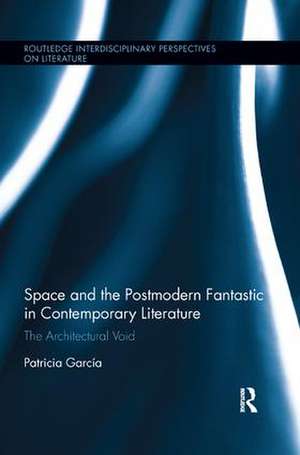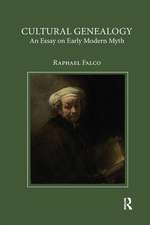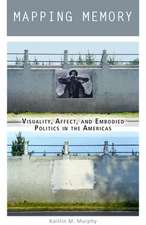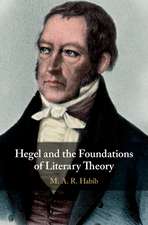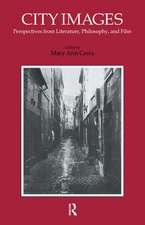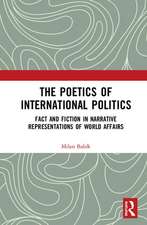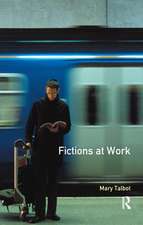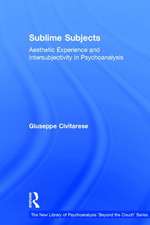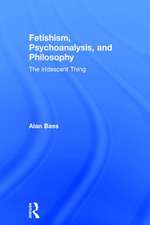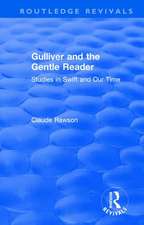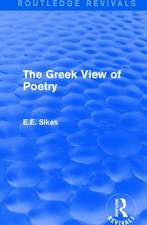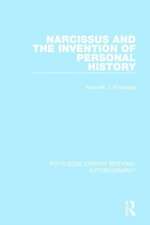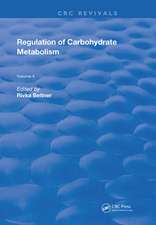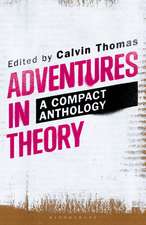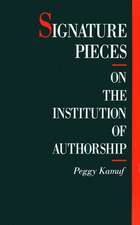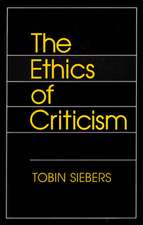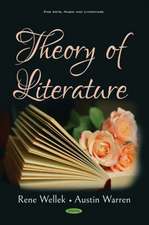Space and the Postmodern Fantastic in Contemporary Literature: The Architectural Void: Routledge Interdisciplinary Perspectives on Literature
Autor Patricia Garciaen Limba Engleză Paperback – 6 feb 2018
| Toate formatele și edițiile | Preț | Express |
|---|---|---|
| Paperback (1) | 436.14 lei 6-8 săpt. | |
| Taylor & Francis – 6 feb 2018 | 436.14 lei 6-8 săpt. | |
| Hardback (1) | 1109.21 lei 6-8 săpt. | |
| Taylor & Francis – 5 mai 2015 | 1109.21 lei 6-8 săpt. |
Din seria Routledge Interdisciplinary Perspectives on Literature
-
 Preț: 277.97 lei
Preț: 277.97 lei -
 Preț: 311.26 lei
Preț: 311.26 lei -
 Preț: 377.87 lei
Preț: 377.87 lei -
 Preț: 339.94 lei
Preț: 339.94 lei -
 Preț: 311.56 lei
Preț: 311.56 lei -
 Preț: 309.27 lei
Preț: 309.27 lei -
 Preț: 310.29 lei
Preț: 310.29 lei -
 Preț: 310.60 lei
Preț: 310.60 lei - 9%
 Preț: 1007.22 lei
Preț: 1007.22 lei -
 Preț: 371.71 lei
Preț: 371.71 lei - 26%
 Preț: 819.48 lei
Preț: 819.48 lei -
 Preț: 442.68 lei
Preț: 442.68 lei - 18%
 Preț: 1110.74 lei
Preț: 1110.74 lei - 26%
 Preț: 877.19 lei
Preț: 877.19 lei - 18%
 Preț: 1117.43 lei
Preț: 1117.43 lei -
 Preț: 486.38 lei
Preț: 486.38 lei - 18%
 Preț: 700.62 lei
Preț: 700.62 lei - 18%
 Preț: 1063.31 lei
Preț: 1063.31 lei - 18%
 Preț: 707.86 lei
Preț: 707.86 lei - 18%
 Preț: 1117.07 lei
Preț: 1117.07 lei -
 Preț: 488.29 lei
Preț: 488.29 lei - 18%
 Preț: 1057.05 lei
Preț: 1057.05 lei -
 Preț: 383.63 lei
Preț: 383.63 lei - 18%
 Preț: 1109.99 lei
Preț: 1109.99 lei - 18%
 Preț: 1112.34 lei
Preț: 1112.34 lei - 5%
 Preț: 1223.90 lei
Preț: 1223.90 lei - 18%
 Preț: 1036.35 lei
Preț: 1036.35 lei - 18%
 Preț: 1057.89 lei
Preț: 1057.89 lei -
 Preț: 448.49 lei
Preț: 448.49 lei - 18%
 Preț: 1109.99 lei
Preț: 1109.99 lei - 18%
 Preț: 1052.35 lei
Preț: 1052.35 lei - 18%
 Preț: 1118.82 lei
Preț: 1118.82 lei - 18%
 Preț: 1057.09 lei
Preț: 1057.09 lei - 28%
 Preț: 822.01 lei
Preț: 822.01 lei - 18%
 Preț: 1053.16 lei
Preț: 1053.16 lei - 18%
 Preț: 1112.90 lei
Preț: 1112.90 lei - 18%
 Preț: 1109.99 lei
Preț: 1109.99 lei - 18%
 Preț: 1054.27 lei
Preț: 1054.27 lei - 18%
 Preț: 1112.34 lei
Preț: 1112.34 lei - 5%
 Preț: 1222.85 lei
Preț: 1222.85 lei - 18%
 Preț: 1110.74 lei
Preț: 1110.74 lei - 18%
 Preț: 1118.82 lei
Preț: 1118.82 lei - 18%
 Preț: 1112.21 lei
Preț: 1112.21 lei - 18%
 Preț: 1058.38 lei
Preț: 1058.38 lei - 18%
 Preț: 1059.84 lei
Preț: 1059.84 lei
Preț: 436.14 lei
Nou
Puncte Express: 654
Preț estimativ în valută:
83.45€ • 87.13$ • 69.07£
83.45€ • 87.13$ • 69.07£
Carte tipărită la comandă
Livrare economică 04-18 aprilie
Preluare comenzi: 021 569.72.76
Specificații
ISBN-13: 9781138547766
ISBN-10: 113854776X
Pagini: 220
Ilustrații: 4
Dimensiuni: 152 x 229 x 13 mm
Greutate: 0.45 kg
Ediția:1
Editura: Taylor & Francis
Colecția Routledge
Seria Routledge Interdisciplinary Perspectives on Literature
Locul publicării:Oxford, United Kingdom
ISBN-10: 113854776X
Pagini: 220
Ilustrații: 4
Dimensiuni: 152 x 229 x 13 mm
Greutate: 0.45 kg
Ediția:1
Editura: Taylor & Francis
Colecția Routledge
Seria Routledge Interdisciplinary Perspectives on Literature
Locul publicării:Oxford, United Kingdom
Public țintă
Postgraduate and UndergraduateCuprins
Introduction: The Arkhitekton 1. The Fantastic of Place and the Fantastic of Space 2. BODY: (not) Being in Space 3. BOUNDARY: Liquid Constructions 4. HIERARCHY: Spaces Inside-Out 5. WORLD: Ontological Plurality Conclusion: The Fantastic Dimension of Space
Notă biografică
Patricia García is Assistant Professor in the School of Cultures, Languages and Area Studies at the University of Nottingham, UK.
Recenzii
'This impressive study of the postmodern fantastic makes a fresh foray into the terrain through its sustained emphasis upon the paradigms of space and place. Its genuinely global reach is especially exciting and, for those readers whose access to literary texts is too often restricted to works written or translated into English, Garcia’s insights into the Hispanic writings of José María Merino, Patricia Esteban Erlés, José B. Adolph and others, opens up a particularly rich literary landscape.' -- Lucie Armitt, University of Lincoln, UK
Descriere
This book studies how conceptions of postmodern space have transformed the history of the impossible in literature. This book conceptualizes and contextualizes the postmodern, fantastic use of space that disrupts the reader’s comfortable notion of space as objective reality in favor of the concept of space as socially mediated, constructed, and conventional. García analyzes a global corpus of the Fantastic, merging literary analysis with classical questions of space related to philosophy, urban studies, and anthropology. This book contributes to the Fantastic, narratology, and Geocriticism and informs the interdisciplinary debate on how we make sense of space.
